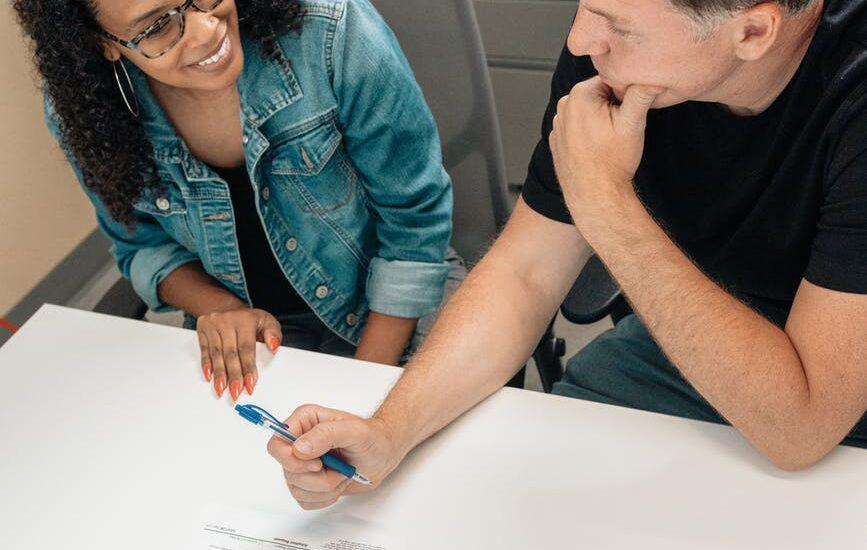- May 24, 2021
- Posted by: kpacha
- Categories: LGBTQ, Provider, Virtual Training, Workplace

I am often asked in my LGBTQ and Gender & Pronoun Inclusion trainings whether it is okay to ask someone about their gender pronouns. Is it rude to ask about gender pronouns? Unprofessional? An invasion of privacy? Or is it appropriate, necessary, and/or considerate to ask about gender pronouns?
The answer depends on the context. If we are merely curious about someone we perceive to be gender nonconforming and it’s not relevant to our interaction with them, it’s best to keep our inquiry to ourselves. (“Hmmm…this person is androgynous, I wonder if they use a gender-neutral pronoun?”) Most people who ask this question are wondering how to avoid misgendering someone, and simply want to be proactive and respectful. For folks who work in customer service, sales, perform program intakes, or otherwise client-facing roles, asking about pronouns may be one of several basic information gathering questions we use with every new contact.
What do we do if we confuse or offend someone when we ask about gender pronouns?
Despite our best efforts to be respectful, just because we ask about someone’s gender pronouns doesn’t mean we will get the information we want or need. Some people may become confused when asked about their pronouns (“I’m sorry…what is a pronoun?”) Others may become upset (“What? Do I not look like a man?!”) Still others may not feel safe in sharing their correct gender pronouns (“Everyone is putting their pronouns in their email signatures, and I feel pressured to out myself.”)
Although many institutions have made asking & sharing about gender pronouns part of their culture, some transgender, gender nonconforming, and nonbinary people have experiences where their pronouns are still not respected even after sharing them with a group (i.e. “Even if I tell people I use ze/zir pronouns, they call me ‘she’ anyway.”) In environments where there is still confusion about the connections between sex assigned at birth, gender expression, and gender identity, folks whose name, gender presentation, or other aspects of identity do not conform to stereotypical gender expectations may be misgendered regardless of what they share with others. This is why it is so important to receive training & support about pronoun usage and best practices.
Two activities to identify gender pronoun best practices
In my LGBTQ and Gender & Pronoun Inclusion trainings, I offer two activities that help us explore what it is like to talk with others about pronouns. First, I provide you and your organization with a 5-step process on how to ask someone about their pronouns, and what to do if offense or confusion results. Secondly, I facilitate a gender pronoun roleplay where participants act as someone who misgenders a person, as the person who is misgendered, and as bystanders who can intervene. In the gender pronoun roleplay, participants embody the pronoun best practices I recommend, and slow down the interaction so folks can pay attention to their internal reactions as they are corrected by others, correct themselves, and are perhaps misidentified.
If you are interested in learning more about gender pronouns, click here to book a training, or contact me here.
Learn more about my background and experiences here. I look forward to supporting your community!
